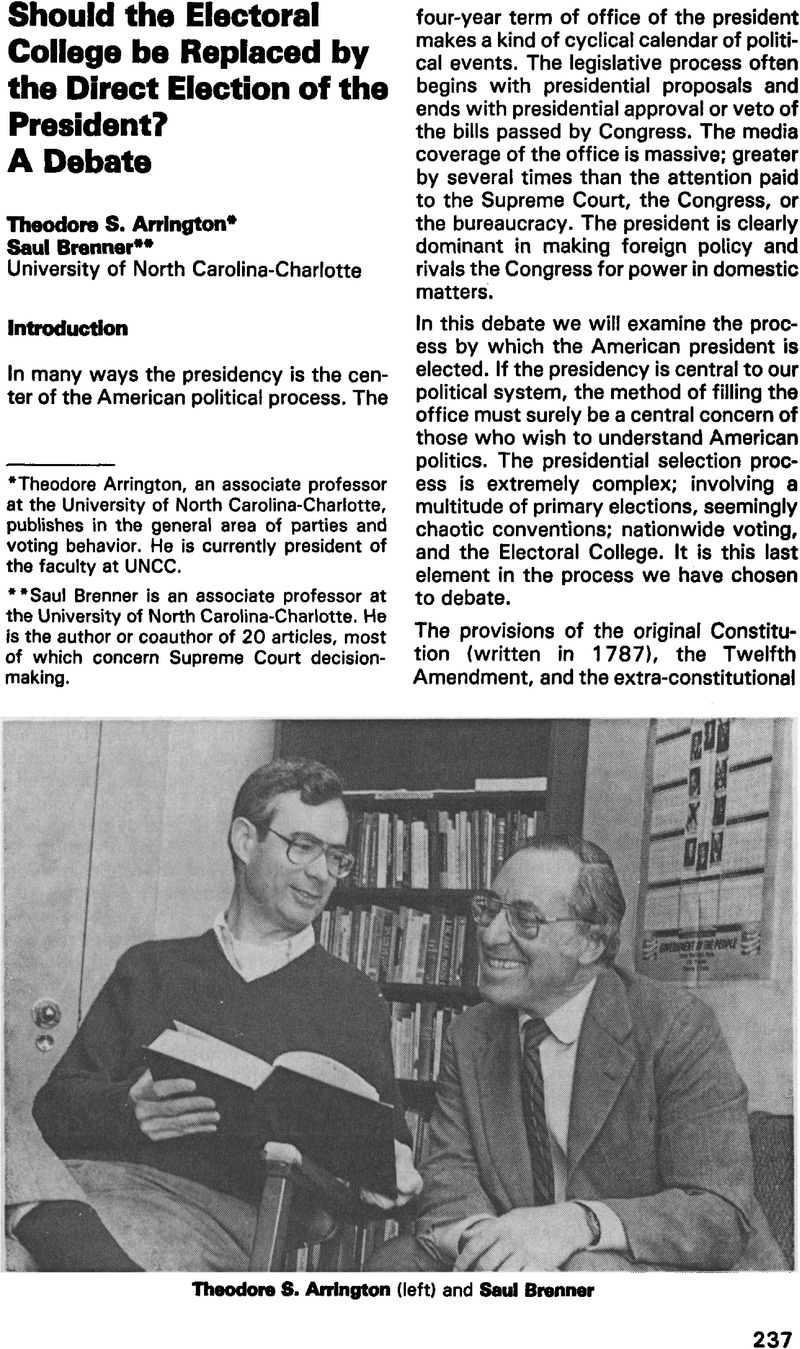Crossref Citations
This article has been cited by the following publications. This list is generated based on data provided by Crossref.
Smith, Eric R. A. N.
and
Squire, Peverill
1987.
Direct Election of the President and the Power of the States.
Western Political Quarterly,
Vol. 40,
Issue. 1,
p.
29.
Adkison, Danny M.
and
Elliott, Christopher
1997.
The Electoral College: A Misunderstood Institution.
PS: Political Science & Politics,
Vol. 30,
Issue. 1,
p.
77.



